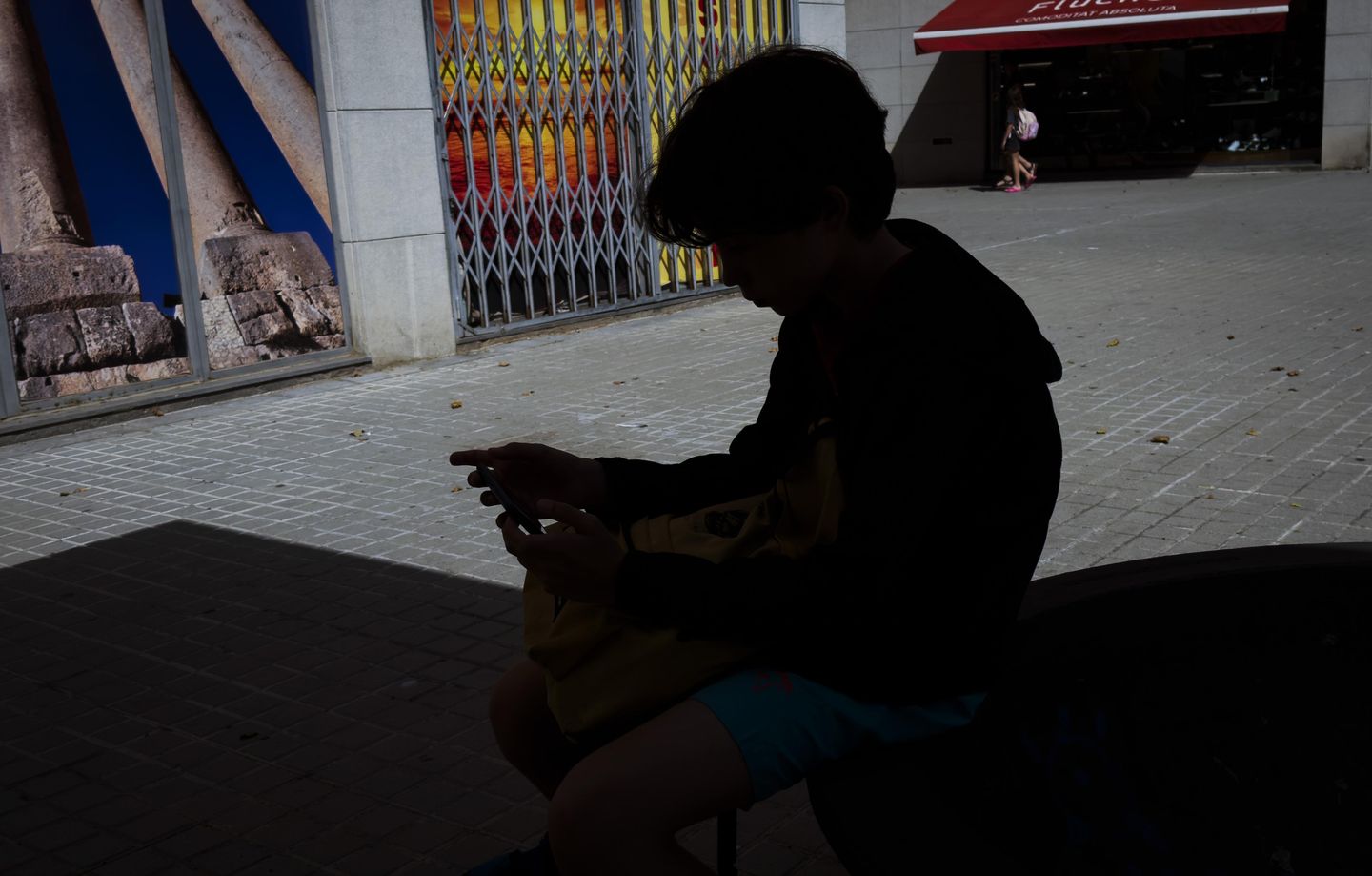
A recent study found that 15% of children and teenagers spend at least 9 hours per day using smart devices for nonacademic purposes, putting them at risk of behavioral addiction problems requiring professional intervention.
In an analysis of health survey data, two researchers estimated that the same children averaged 60 hours or more a week streaming, doomscrolling, marathon watching and interacting on social media.
Comparing the effects of this habit to alcoholism, they published their findings Monday in the Journal of the American Medical Association.
Noting that teenagers attend school for roughly 6 hours a day and should sleep 8 to 10 hours a night, the researchers wrote that millions “must be using them during school and/or forgoing sleep to do so.”
Dr. Dimitri Christakis, a pediatrician and the study’s lead author, said the findings call on families to limit screen time even as academics debate whether social media addiction is a real disorder.
“No activity except school or work done for that many hours a day on a regular basis is healthy,” Dr. Christakis, also a professor at the Seattle Children’s Research Institute, told The Washington Times. “That is a cause for concern and we should act on it.”
The study said social media misuse among minors includes “inappropriate content” such as cyberbullying and artificial intelligence image filters that foster eating disorders. Moreover, it noted that the habit often distracts the minor users while driving and during other dangerous situations.
The researchers defined social media use disorder as an addiction that is “characterized by an impaired ability to stop or control media use despite adverse social, occupational/school-related or mental health consequences.”
Multiple studies have linked increased screen time and social media use to a post-pandemic surge in sleeplessness, anxiety, depression and suicidal behavior among young people.
Over the past year, Virginia and several other states have banned cellphones from K-12 classrooms, noting that students increasingly use them for distractions rather than texting mom. Dozens of school districts and hundreds of public and private campuses have done the same.
Janet V. Kelly, Virginia’s secretary of health and human resources, said 90% of studies on screen use have linked it to sleeplessness, obesity, poor academic performance and impaired thinking.
“The impact of social media and excessive screen time needs to be addressed in the context of the youth mental health crisis, and we need to bring awareness, tools and resources to both homes and schools,” Ms. Kelly said in an email.
In a 2022 survey by the Pew Research Center, 95% of U.S. teens aged 13-17 reported using social media and 98% of children had at least one social media account by age 18.
Laura Linn Knight, a parenting coach and former first-grade teacher, said children who spend 9 hours daily on smart devices likely have parents who are also “addicted to their phones.”
“Most people want to monitor their kids, but they feel so overwhelmed that it keeps getting pushed down on the priority list,” said Ms. Knight, who limits her 10- and 12-year-old children to 2 hours of nonacademic screen time daily. “When parents spend more time on devices than with our children, we’re modeling to them that it’s OK to have the same relationships.”
According to the study published Monday, 5% of minors exhibit “high-intensity media use” of 12 hours or more each day — a finding that suggests they stare at their devices constantly during waking hours.
Roughly half of children spend less than 5 hours daily using digital media, which the study defined as “moderate media use.”
However, the researchers said screen time is likely to grow as wearable technologies such as smart glasses and smartwatches become more common.
“There can be too much of [a] ’good’ thing,” they wrote.
Ray Guarendi, a Catholic media personality and family psychologist in Canton, Ohio, said the findings confirm screen addiction has become disastrous for families.
“Parents will ask me, ‘what is the one thing I can do to undercut everything I’m trying to teach my children about how to live well?’” Mr. Guarendi said. “And I answer, ‘no question, give them a smartphone — especially in the early teens — and make sure it is unsupervised and unlimited in time spent on it.’”












